The Truth About Butter
Is butter truly healthy? What does the research say? Here are the facts you need to know.
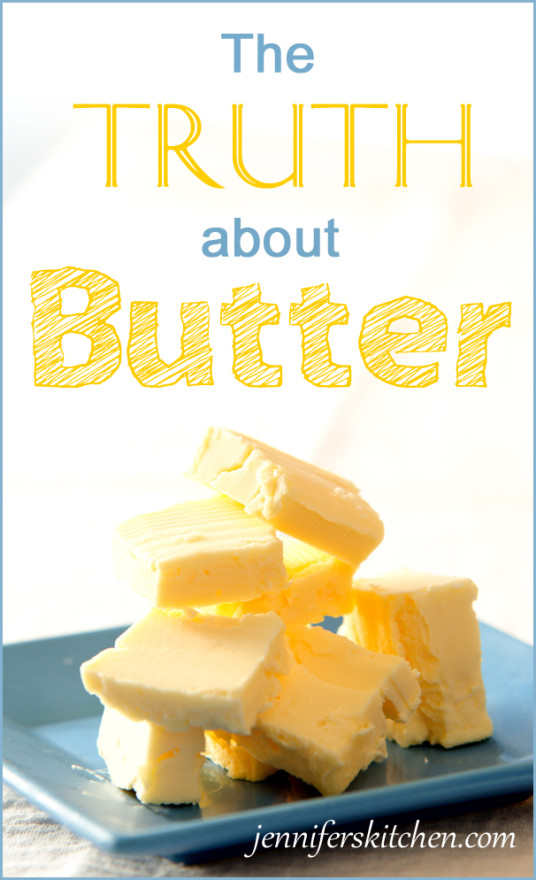
From Time magazine to new books like The Big Fat Surprise to the web – we see and hear reports of how butter is back and it is the supposed missing link to good health.
But Is Butter Really Healthy?
Is butter truly good for you? Is it really healthy?
What Does the Research Say?
To find the answer to this question, researchers from Tufts University placed six groups of subjects on diets that were all equal except for one factor – the source of refined fat used. In each group, a minimum of two-thirds of the fat came either from soybean oil, “squeeze-bottle” margarine, soft margarine, shortening, stick margarine, or butter.
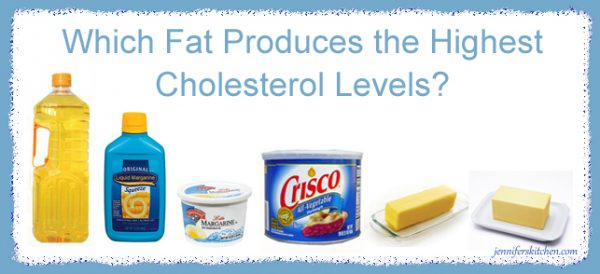
Which fat caused the highest blood cholesterol levels?
Cholesterol levels were highest among participants who used butter and lowest among those who used the soybean-oil and semiliquid-margarine diets.
Does this mean oil and semiliquid margarine are healthy choices? Not at all. Cholesterol levels most certainly could have been even lower if whole foods, such as nut butters or avocados, were one of the fat options.
But the study does make us wonder if butter is not the “darling” the media makes it out to be.
Butter’s True Character Revealed
In the GISSI-Prevenzione Study, a large-scale clinical trial which involved five groups of heart attack survivors, those who consumed the most butter had a 2.6 times greater risk of dying within 42 months after their heart attack.
A recent article in the journal Cancer showed a strong positive correlation between breast cancer and ovarian cancer mortality rates and animal fat consumption.
An article published in the Canadian Medical Association Journal showed that countries with a higher intake of fat, especially fat from animal products (like butter), have a higher incidence of breast cancer.
Research also shows that animal fats increase the risk of developing Alzheimer’s and reduce brain functioning in the short term.
The Problem with Butter
One of the biggest issuse with butter is its high saturated fat content. But, lately, we’ve been hearing that saturated fat is good for us. Is this true?
Numerous studies, including one published in the American Journal of Clinical Nutrition involving 11,000 people with saturated fat intake ranging from 6% of calories to more than 13% of calories, found those with highest saturated fat intake had 3 times the risk of dying of heart disease, compared with diets that had very little saturated fat.
Estrogen
But saturated fat is not butter’s only downside.
It’s well known that estrogens encourage the growth of many breast tumors. Research shows that a diet high in animal fats increases the amount of estrogens and reduces the number of carrier molecules that keep estrogens in check, thus increasing the incidence of breast cancer by 3 times.
Prostate Cancer
Many studies have linked the incidence of prostate cancer to the consumption of animal fat and dairy products.
A study of 47,896 men found that “choline intake was associated with an increased risk of lethal prostate cancer.” Animal products contain the highest amounts of choline.
The Physicians’ Health Study which followed over 20,000 men for 28 years found that men who drank more than 1 glass of dairy milk per day had double the risk for fatal prostate cancer.
Is Organic Butter Better? Is Butter from Grass-Fed Cows Better?
What about organic animal products? What about using butter or milk from pasture-fed cows?
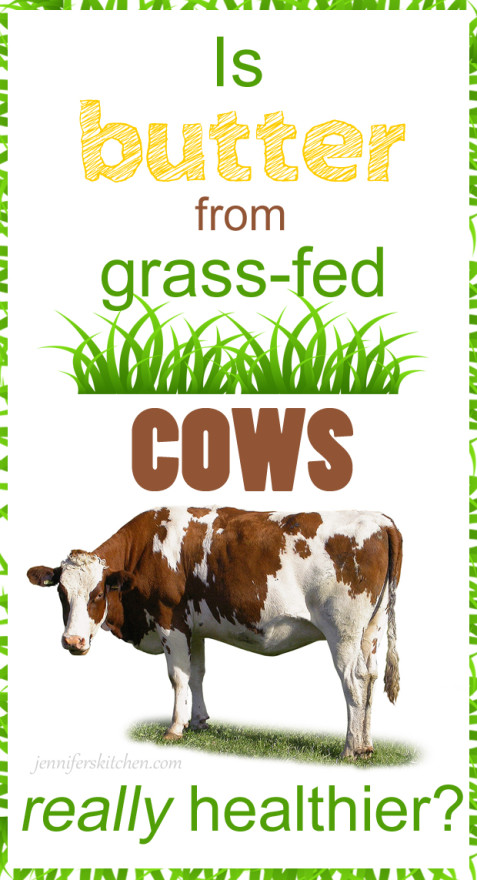
Even though organic milk and butter may contain fewer contaminants, and milk and butter from grass-fed cows may offer a slightly higher nutrient profile than products from conventionally-raised cows, they still contain the components that increase risk for disease, such as heart disease, obesity, hypertension, dementia, diabetes, and some cancers.
For example, let’s look at milk from a cow that’s been grass-fed organically. Even if it has fewer contaminants and slightly more nutrients, it is still a source of saturated fat and casein (a cancer-causing agent). It’s also loaded with a plethora of naturally-occurring hormones, including thyroid hormones, pituitary hormones, steroid hormones, hypothalamic hormones, and growth factors (including IGF-1 – a powerful cancer promoter for the human system).
We can see real-life examples of the negative health effects of organic, pasture-raised animal products in the lives of the nomadic people in Central Asia during the early 1900’s. The diet of the nomads consisted primarily of milk and meat from organic, grass-fed animals living a far more natural life than any animal in the U.S. today ever dreamed of living. These people experienced high rates of atherosclerosis and obesity.
Why the Recent Butter Craze?
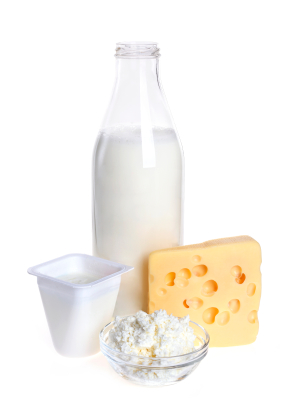
“Butter is Back”
“Ending the War on Butter”
“Butter: The New Health Food”
It’s all over the media. What’s up with butter?
In late 2008, the global dairy industry held a meeting in Mexico City and made plans to “neutralize the negative impact of milkfat by regulators and medical professionals”. Subsequently, they found scientists who would work with them and provided them with funding to perform “research” that would make the public disbelieve the connection between saturated fat and disease. Ever since the beginning of 2009 we’ve been seeing articles and hearing media reports based on shaky science promoting the benefits of saturated fats.
In early 2014, researchers combined data from several studies, and a paper was published reporting no significant link between saturated fat and heart disease was found. The media grabbed this news and ran with it. However, several scientists – and even some of the report authors themselves – have expressed concern about the numerous errors in the report and have shown where incorrect numbers were pulled from many of the original studies. Many scientists are calling for a retraction.
Furthermore, there were several studies that were not involved in this analysis, including many that show that diets low in saturated fats reduce incidence of heart attacks and strokes. (* See note at bottom of post for more info.)
Big Fat Confusion
Another factor adding to the confusion is diets rich in butter are often compared with unhealthy “low-fat” diets composed of processed foods. That’s like comparing smashing your thumb with a brick versus smashing your entire hand with a brick. Sure, smashing only my thumb would be a little better, but if I had a choice I’d rather avoid both scenarios.
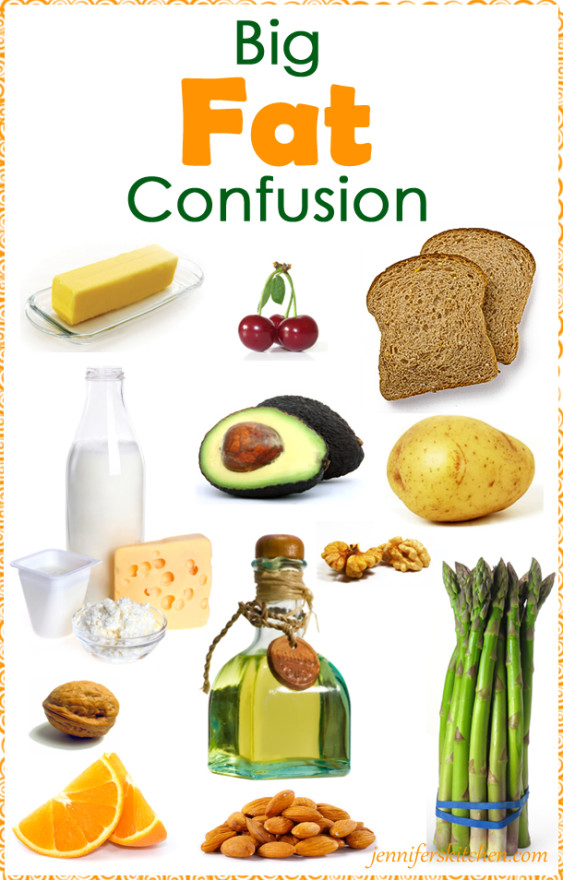
The paper I mentioned above also neglected to address what people who reduced their intake of saturated fats consumed instead. When saturated fat is replaced with junk food, then reducing saturated fat intake logically has no health benefits.
Butter vs an Unhealthy, Low-Fat Diet
In the Time article I referred to at the beginning of this post, the author equated skim milk, margarine, dinner rolls, and non-fat ranch dressing with a low fat diet. Compared to this very pathetic example of a low-fat diet, it’s easy to make butter look good.
Are these the only two options? Thankfully, no.
Butter vs a Healthy Diet
For years, thousands of studies and reams of research have shown a diet based on fruits, vegetables, whole grains, a moderate amount of nuts and seeds, and a minimal amount of processed foods to be preventative against heart disease, cancer, diabetes, obesity, and cognitive decline.
Whole, plant-based foods. Simple. But I suppose that would be a rather boring story for Time.
Sound Research
Is butter healthy? Where is the research to back this up? They don’t really have much to stand on.
On the other hand, numerous studies have shown that animal fats contribute to disease. Here are just a few examples:
Cholesterol May Cloud Your Thinking
According to a report from the Archives of Neurology excess cholesterol impairs memory, language, orientation, and other brain functions.
Breast Cancer Again Linked to Animal Fat
Harvard researchers conducted a prospective analysis of 90,655 premenopausal women aged 26 to 46 and determined the intake of animal fat during premenopausal years is associated with an increased risk of breast cancer. An increased risk was not associated with eating vegetable fats.
The Fewer Animal Products, the Less Weight Gained
International Journal of Obesity reported on a cross-sectional study that showed the fewer animal products in the diet the less weight gained over a 5-year period.
A Diet without Animal Fats Reduces the Risk of Diabetes
In 2009, the Adventist Health Study, a study involving more than 60,000 men and women, found that the prevalence of diabetes in individuals on a vegan (plant-based) diet was 2.9%, compared with 7.6% in the nonvegetarians.
Plant-Based Diet Caused Regression of Coronary Atherosclerosis
In the Lifestyle Heart Trial, Ornish found that 82% of patients with diagnosed heart disease who followed a plant-based regimen (allowing 10% of calories from fat, 15% to 20% from protein, and 70% to 75% from carbohydrate, and less than 5 mg cholesterol per day) had some level of regression of atherosclerosis after one year. Fifty-three percent of the control group had progression of atherosclerosis.
After 5 years, stenosis in the plant-based group decreased. The control group experienced a progression of stenosis.
Plant-Based Diet Reduced Risk of Cardiovascular Disease and Total Mortality in Adults
The Dietary Guidelines Advisory Committee found that plant-based diets were associated with a reduced risk of cardiovascular disease and mortality compared with non-plant-based diets.
The Cold, Creamy Facts
No matter what you see on TV, the internet, in books, or in magazines, study after study have shown that animal fats – including butter – are damaging to health. Some research shows that replacing animal fats with plant oils rich in polyunsaturated and monounsaturated fats lowers the risk of many diseases, but the best option is to eliminate as much oil as possible from the diet. ALL oils are a refined/processed product.
What Should I Eat!?!
We would do well to lean toward a diet based on whole, plant foods.
Use avocado or hummus on bread (instead of margarine), nuts or nut butters in cookies (to replace at least some of the butter or margarine), and seeds or nuts as a base for salad dressing (instead of oil).
If you’d like more help eating a healthy diet, check out the delicious meal plans and recipes in my Weight Loss Program.
More Info about Butter
* You can read more about the report here and you can watch a video about it here. and you can read about Dr. Greger’s response to Butter is Back here.
You my also like:
Before you go . . .
Did you know that you can eat all this delicious food AND lose weight? You can!
No calorie counting. No portion sizes.
Join my online weight loss program today!


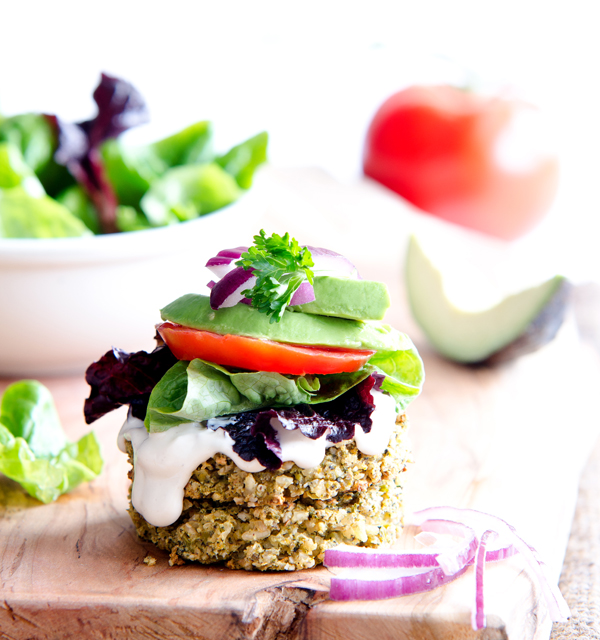


Wow! This is a lot of valuable information. I hope all your readers sit up and take notice. But unfortunately I do believe that many people would rather smash their entire hand with a brick than give up something they enjoy eating.
Recent work has focused more on sugar as a detriment to health than cholesterol which makes me believe that butter is a good alternative to margarine as my in laws who had a dairy farm lived into their 80-90′ with reasonable good health with egg/butter/milk common at the table. use.
I agree that sugar is very damaging to health and should be minimized from the diet as much as possible.
It is important to look at comprehensive studies rather than anecdotal evidence since we’ve all heard about the woman who lived to be 100 smoking 2 packs of cigarettes a day. 🙂 And those studies indicate that both butter and margarine are closely connected with increased rates of cancer, heart disease, and obesity to name a few.
We would do well to base our diet on whole, unrefined, plant foods and use avocados, nut butters, and similar spreads/sources of fat rather than butter or margarine.
There is a lot of good information in this article. It makes sense and is logical, but at the same time doesn’t cover certain things.
I’m sure a whole pant based diet is the best diet, in a perfect world, but in this world…..
Plant based crops are genetically modified, sprayed with pesticides, grown in contaminated soil, or grown in soil with no goodness, etc, etc.
Just because it’s plant based doesn’t mean it’s good for you or that it will agree with your body.
And even if you thinking your eating organic, healthy food. It’s usually just creative and deceptive marketing.
You make a very good point, Josh. Human beings have meddled with nature and altered many foods. It’s so sad.
Yet, even with the GMO, pesticide-laden foods grown in poor soil, study after study after study has CONSISTENTLY shown that a plant-based diet protects us from disease far better than a diet that includes animal products – even with inferior plant-based foods!
So, if we can have better health with inferior plant foods, think of what excellent health we could have with organic foods grown in healthy soils. The good news is, we can do this. There are many small farmers across the nation and around the world who recognize the wrong direction we humans are going. They recognize the value of healthy, pesticide-free food grown on naturally-enriched, healthy soils and they have made it their life work to provide their fellow human beings with healthy, organic foods.
By purchasing from these farmers (at a farmer’s market or through a CSA), we can not only secure these healthy foods for ourselves and our families, but we can support those who are taking important steps toward protecting our food supply.
(And of course, you can grow your own food – the perfect way to know what goes into the food you are eating.)
And you’re absolutely correct that just because a food is plant-based, doesn’t mean it is good for you. That’s why I promote a whole-food, plant-based diet. We must eat foods as close as possible to how nature provides them and we also must pay attention to our bodies and avoid foods that we may be sensitive to in one way or another.
You do make some very good points and I am saddened to see the direction of our food supply, but I am also grateful that, if we choose to, we can still provide our bodies with healthy foods.
Jennifer
Thanks for your reply Jennifer. I would agree with the majority of your points there. I prefer to buy local and support small businesses. I grow my own organic sprouting seeds for salads, which is very rewarding and satisfying. I have a herb garden which I use in all my dishes. I don’t drink milk or eat yoghurt or cheese. I stay away from refined carbs, especially bread and I feel much better on this diet.
But I do love a small piece of grass fed butter to flavour vegetables. It’s locally sourced and the cows have been antibiotic free for 7 years. They are allowed to roam free in meadows and eat all kind of wild herbs. And I enjoy an occasional grass fed piece of steak.
I think balance and moderation is always the key.
Too me they are whole foods and of good quality and nutritional value. If people just cut out processed foods full of additives and preservatives I think this would make the most impact on their health.
I do understand where you are coming from with your studies showing statistics, unfortunately I am a little skeptical of some studies.
Everyone has their own agenda in this world. Wether it’s pushing all meats diet, vegan diets, paleo diets, etc. Those studies all have to have been financed and paid by someone, which usually results in their opinions or ideas been pushed. Similar to the butter studies in your article.
Thanks josh
Just an additional thought. I was very ill a few years back. Had brain fog, fatigue, pain all over my body. I ate garlic very often. As it’s touted that it’s a super food and so good for you. I line in the UK and was buying organic garlic from Tesco. Thought I was been healthy. It turns out that they import there garlic from China. In China, regardless of wether it’s organic or not. It’s grown in untreated human waste, full of lead, arsenic, cadmium And many other poisons. By law all food that leaves China has to been sprayed with the pesticide called methyl bromide. It’s a carcinogenic and neurotoxin.
I stopped the garlic and my health improved dramatically. I thought I was eating organic and being healthy.
So I can’t really agree with your point that even ‘GMO crops , laden with pesticides, grown in poor soil’ are better than a diet with animal products.
Grass fed butter from happy animals in the sun, eating wild herbs, which means they don’t need antibiotics. Compared to plant based foods, laden with toxins and poisons that have been genetically modified, grown in human excrement. Really….?
Agree that cow dairy fats, are bad because of saturated fats and estrogen content. The last ones may be fewer in case of organic cow dairy due to not milking the cow during pregnancy (or certain trimestres of it, i wish organic certifications were more strict in that).
Other animal fats for example meat, sure they contribute to cholesterol but i doubt they contribute to cancer if organically treated. Those studies had put all animal fats in the same basket, not the same a frankfurt sausage than a steak.
But why skim organic milk is bad?
Also olive virgin oil is not refined or processed.
I want to point out that in analisis there were found heavy metals in organic soy protein powder due to soy natural tendency to absorb heavy metals from the soil. Vegetable = good and animal = bad is a fade promoted by the elites aiming to cut freedom to choose meat to citizens and we should be carefull to promote them or soon the government will defacto choose for us.
John,
Virgin olive oil is most definitely refined. In its unrefined state it is an olive. There is no way to get oil from an olive without processing the olive (removing fiber and other nutrients).
Skim milk causes disease because it isn’t just the animal fat that is problematic but also the animal protein.